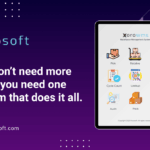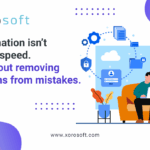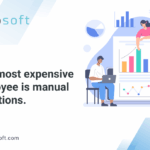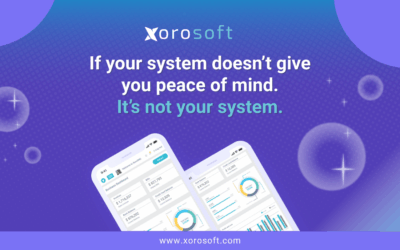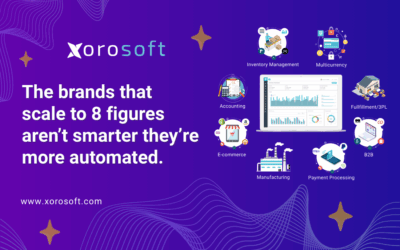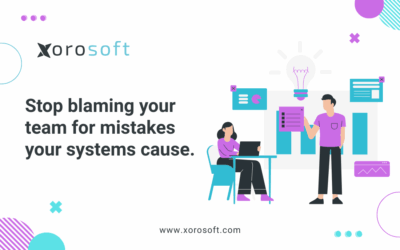
Why Sales to Settlement Reconciliation Breaks as You Scale
Sales to settlement reconciliation is often the silent killer of operational efficiency. You’re making sales, shipping orders, and watching your dashboards glow green. However, in the background, something’s not adding up.
Your finance team can’t match payouts. Refunds haven’t cleared. Chargebacks are hiding in spreadsheets. Until this process is fixed, your books won’t reflect reality—and your business decisions will suffer.
What Fails in Sales to Settlement Reconciliation Workflows
When reconciliation breaks, it leads to more than messy spreadsheets. Additionally, it reduces operational accuracy.
-
Cash flow projections become inaccurate
-
Revenue appears higher than actual settlements
-
Refunds and disputes are missed or delayed
-
Teams waste hours reconciling payouts manually
-
Month-end close slows down due to mismatches
Eventually, this impacts your leadership team’s confidence in the numbers. Moreover, decisions based on flawed data can derail growth. As a result, trust between departments erodes over time.
Why Sales to Settlement Reconciliation Fails in Most Businesses
These failures often stem from how businesses stitch together their systems. Consequently, small issues compound into large-scale inefficiencies.
Disconnected Tech Tools
Most teams rely on Shopify, Stripe, QuickBooks, and spreadsheets. These platforms don’t talk to each other. Therefore, your staff must move data manually between tools. In many cases, this leads to delays and errors.
Delayed or Batch Syncs
Even with integrations, most systems rely on batch updates. Because of this, data in reports is always lagging behind real activity. In turn, leadership may make decisions based on outdated information.
Manual Payout Matching
Manually matching Stripe or PayPal payouts to order numbers is slow and error-prone. Additionally, it diverts finance teams away from strategic tasks. For instance, reconciling hundreds of orders by hand becomes impossible during high-volume periods.
Missing Refund and Chargeback Visibility
Refunds often happen outside your ERP, and chargebacks go unnoticed. Without real-time tracking, financial statements become inaccurate. Furthermore, these discrepancies cause friction during audits and financial reviews.
ERP Solutions That Fix Sales to Settlement Reconciliation
A real-time ERP replaces manual processes with automation. In other words, it eliminates delays and lets teams work with connected data. As a result, your reconciliation workflow becomes fast, clean, and scalable.
Live Sales and Payout Matching
Orders, refunds, fees, and taxes flow through your system instantly. Therefore, reports stay accurate and up to date. In contrast, traditional systems update once per day or even less frequently.
Chargeback and Refund Sync
Xorosoft logs every refund and dispute in real time. That means no more inflated revenue or missing deductions. Moreover, the system flags potential mismatches before they impact your books.
One Source of Truth
Instead of juggling spreadsheets, dashboards, and reports, you get one clear financial view—trusted by every team. This reduces confusion and speeds up decision-making. For example, your finance and operations teams can both rely on the same figures at the same time.
Xorosoft ERP for Sales to Settlement Reconciliation Accuracy
Xorosoft ERP is purpose-built to handle reconciliation challenges across platforms and currencies.
-
Real-Time Accounting Integration: Every sale, fee, refund, and chargeback is posted immediately. Hence, your financial data is never stale.
-
Shopify-Native Sync: Orders, taxes, discounts, and returns are updated live. As a result, your finance team avoids manual entry.
→ See the Xorosoft ERP App on Shopify -
Payout Matching Across Channels: Whether you use Amazon, Stripe, or PayPal, everything reconciles automatically. This reduces manual effort while increasing accuracy.
-
Scales With You: Manage multiple warehouses, currencies, and tax rules—without needing extra plugins. In fact, the system is built for fast-growing businesses like yours.
-
Trusted by Users: Xorosoft is rated #1 for ease of use on G2.
→ Check Xorosoft on G2
Risks of Ignoring Sales to Settlement Reconciliation
Delaying this fix creates risk across every layer of your business. Even a single missed refund can snowball into major problems.
-
You might overestimate revenue and overspend
-
Budgeting becomes impossible without accurate data
-
Refunds and chargebacks may be omitted from reporting
-
Audits become stressful and time-consuming
-
Investors and stakeholders may lose confidence in financials
For these reasons, proactive reconciliation is essential. In fact, it’s often the missing link between chaos and clarity.
How to Start Solving Reconciliation With ERP
Start here—even if you don’t change everything at once:
- Sync Shopify, Stripe, and QuickBooks with Xorosoft
- Automate payout matching and refund tracking
- Replace spreadsheets with real-time dashboards
- Enable role-based access so every department sees clean data
- Use Xorosoft’s reporting tools for month-end close and audit prep
Each step reduces risk and saves time. Together, they eliminate reconciliation chaos. Additionally, you’ll create a more confident, empowered finance team.
Why Reconciliation Accuracy Leads to Faster Growth
Accurate sales to settlement reconciliation isn’t just a financial task—it’s a strategic growth enabler.
When your numbers are clean and current:
-
Forecasts are accurate
-
Budgets are confident
-
Investors trust your reporting
-
Audits move faster
-
Teams make smarter, faster decisions
Moreover, confidence in data enables companies to grow without fear. Xorosoft ERP eliminates the guesswork and gives you control.


